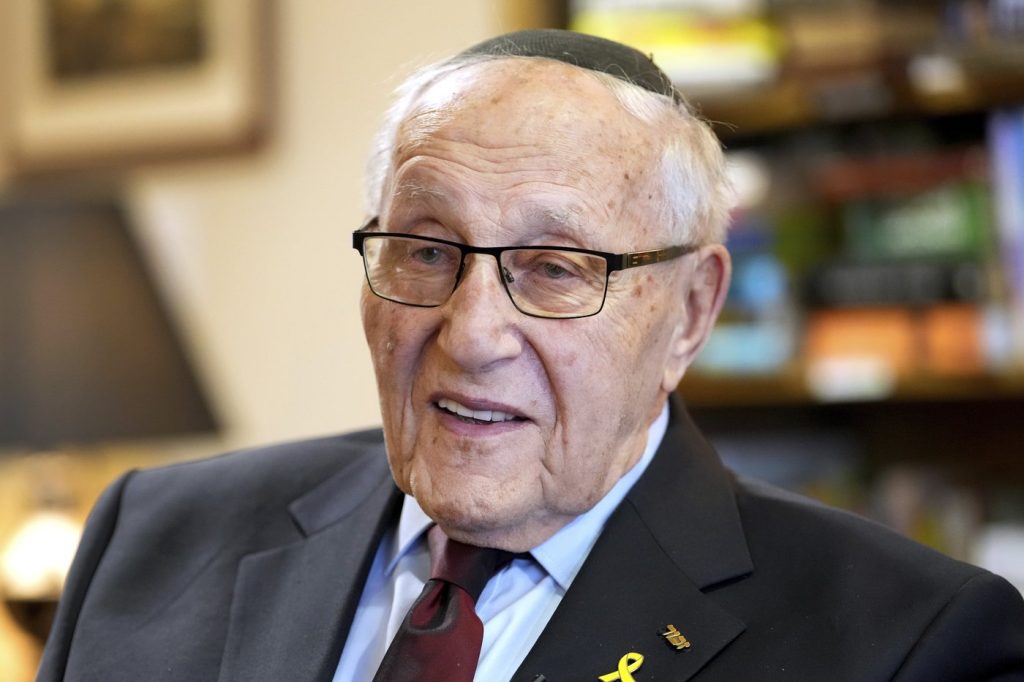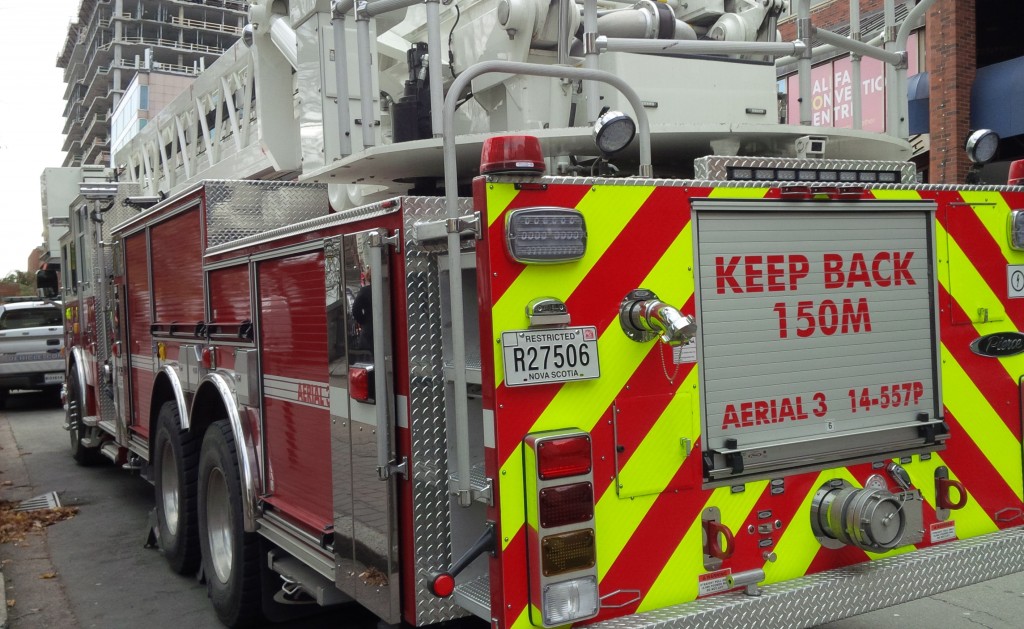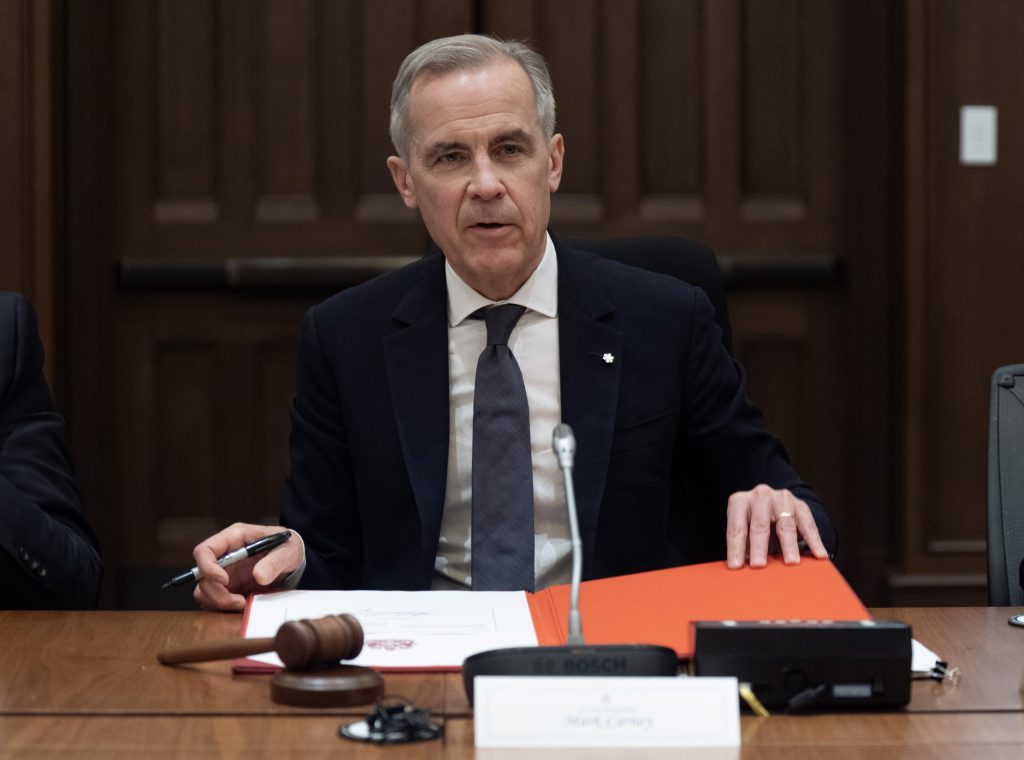Manfred Goldberg wants you to know how the Nazis took his brother’s life. And how an angel saved his

Posted Jan 25, 2025 01:22:43 AM.
Last Updated Jan 25, 2025 04:01:45 PM.
LONDON (AP) — Manfred Goldberg was just 13 years old when — stripped to his skin and shuffling toward an SS guard at a Nazi labor camp in Latvia — a man leaned over his shoulder and whispered the secret that saved the young Jew’s life.
“If he happens to ask you your age, say you are 17,’’ the man told him.
Goldberg followed the advice and the guard directed him to the group selected for slave labor. It was only later that he realized that the younger prisoners were sent to die because the guards believed anyone under 17 was too young to work profitably for the Nazi war machine.
“I sometimes think of that man as an angel who was sent to save me,’’ Goldberg said. “I never saw him again.”
Monday’s ceremony marking the 80th anniversary of the liberation of Auschwitz is more than a moment to remember some 6 million Jews who died in the Holocaust. It is a reminder that the number of survivors is dwindling, leaving fewer and fewer people to bear witness to the Nazi genocide at a time when Holocaust denial and antisemitism are on the rise.
“I’m only a drop in the ocean,’’ he said in an interview at the Jewish Care Holocaust Survivors’ Centre in London. “But I’ve made up my mind that as long as God gives me the strength, physical and mental, to continue doing it, I have committed myself to keep on doing it. So that’s why I’m here at age 94, speaking to you.”
This is his story.
Nazi rise
Manfred was born in Kassel, a city of about 220,000 in central Germany. Just 3 years old when the Nazis came to power in 1933, he didn’t realize how the country was changing until he enrolled in the Jewish primary school nearby.
By then, the Hitler Youth, an organization that was outwardly similar to the Boy Scouts but was used to indoctrinate children in Nazi ideology, had begun to spread hatred of the Jews.
“They lay in wait of us sometimes, to ambush us and assault us or curse us,” Goldberg said.
The children had been warned: Run or face more trouble.
As the Nazis systematically excluded Jews from public life, they first tried to deport Goldberg’s father, then threatened to send him to a concentration camp. Manfred’s mother, Rosa, pleaded for time to get him a visa to emigrate.
She heard diplomats at the British Embassy in Berlin might help, so she traveled 200 miles to see them. There she found Frank Foley, a British secret agent whose embassy job was cover for his spying activities and who ultimately authorized visas for more than 10,000 Jews to escape Germany.
“I believe he was a man with a heart,” Goldberg said.
Foley gave Goldberg’s father an emergency visa and told his mother that the rest of the family could follow in the coming weeks. But 10 days later, on Sept. 1, 1939, the Nazis invaded Poland. The family was split apart.
Wearing the star
As war raged, Germany stepped up anti-Jewish laws.
Jews were required to wear a yellow six-pointed star outdoors, and could only buy food in certain shops. When the shops ran out, Jews were out of luck.
One day, Goldberg’s mother told him to put on his bookbag, which covered the star on his jacket, and go with her to a non-Jewish bakery. Standing across the street, she gave him a handful of coins and told him to run into the shop, ask for a loaf of bread, put the money on the counter and grab the bread before anyone could stop him.
“I was 7 or 8 years old. I just did as she asked me to,’’ he said. “But in retrospect, I realize how serious the situation must have been. She probably would have been going hungry, but she couldn’t bear to see her children suffer hunger.”
Then in 1942, the Nazi regime embarked on what it called “The Final Solution,” the systematic execution of European Jews.
When the SS pounded on the door of the Goldbergs’ modest flat, they gave his mother just 10 minutes to pack a suitcase. After three days and three nights on a train without food or water, Manfred, his younger brother, Herman and their mother found themselves in Riga, the capital of Latvia, beginning a nightmare that would take him to five camps over the next three years.
Becoming a number
Manfred lost his name. He became No. 56478.
Soon they arrived at a sub-camp known as Precu, where Goldberg and his mother were put to work. But Herman was too young and stayed behind in the camp when Manfred and Rosa went out to work. The SS came and took the children away. Manfred never saw his brother again.
“The next morning, both my mother and I had to line up and go to work as though nothing untoward had happened,” he said. “The mourning took place internally, but if we had refused to go to work, we would have lost our lives.”
Only months later, Goldberg faced the same fate as his brother when the unknown benefactor whispered in his ear.
As the Nazis began to lose ground on the Eastern Front, they moved their prisoners west to keep them out of Russian hands and continue the killing.
Goldberg was moved to Stutthof, a camp near the Polish city of Gdansk whose front gate became known as the Gateway of Death because so few inmates left alive. More than 60,000 people died at the camp due to typhus, lethal injections and, beginning in June 1944, after they were gassed with Zyklon B, the same compound used in the gas chambers at Auschwitz.
But there was one last horror to come.
With the war in Europe drawing to a close, the Nazis continued to drive the inmates west toward central Germany.
Goldberg and his mother were marched to 25 miles northwest, where hundreds of prisoners were herded onto barges and held offshore for days without food or water. When the SS guards disappeared, the stronger prisoners ripped up planks and used them as oars to paddle the massive boats back to shore.
But just as the inmates landed, the guards returned. First they shot those too weak to escape, and then rounded up those who had made it to shore, including Goldberg and his mother, and started marching them back to Germany.
Then a British tank column arrived.
“Suddenly our armed guards, who moments earlier had still been killing people for not keeping up to speed, turned and ran away in the opposite direction, away from us,’’ Goldberg recalled. “People were jubilant. We’re not under guard. We’re free! We’re free! … You cannot imagine the joy we felt.’’
After being reunited with his father in England, Goldberg forged a career as an engineer, married and had four children.
For more than 50 years, he refused to tell his story.
He wanted his children to have normal parents, unburdened by the weight of the Holocaust. But about 20 years ago, when he was in his 70s, his synagogue asked him to take part in a remembrance service. His wife, Shary, encouraged him to remember: Who will tell your story when you are gone?
He never looked back.
“Silence never helps the oppressed,’’ Goldberg said. “It always helps the oppressors.”
The best revenge
The living room of Goldberg’s home in London is a testament to all that matters to him, a gallery filled with pictures of children, grandchildren, great-grandchildren and a lifetime of family gatherings. To stand in the room is to see a man who is celebrating the miracle that he was allowed to live.
But there’s also another picture.
It’s a painting of a chubby-cheeked boy with a checkered bowtie and the hint of a smile on his lips. Hung beside the front door, just where it can be seen every time Goldberg steps out into the world, it’s the picture of another boy who didn’t get that chance.
Herman.
___
Associated Press digital producer Nat Castaneda in Copenhagen, Denmark contributed to this report.
Danica Kirka, The Associated Press








